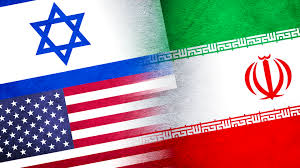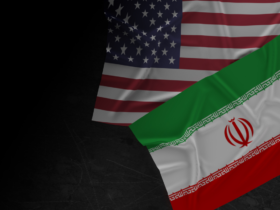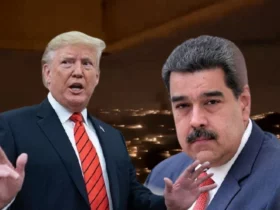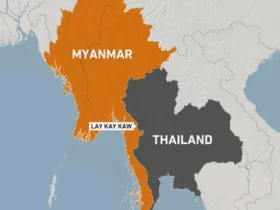The countries around Iran have a critical responsibility.
The countries around Iran have a critical responsibility.
By Onur Sinan Güzaltan
The US joined Israel’s attacks on Iran, and the war grew.
Political Scientist and UWI expert Onur Sinan Güzaltan answered our questions about the latest developments in the war.
The US targeted nuclear facilities in Iran. What are your views on this issue?
The US attacked Iran, ignoring international law and norms. This attack will have many negative consequences.
Iran, which is the target of the attacks, will of course respond in different ways. The biggest of these responses will be to continue to hit Israel, the largest American base in the region. Apart from this, it is possible that Iran’s allies in the region, especially the Houthis in Yemen and Hezbollah in Lebanon, will be involved in the growing war. There are many American bases, centers, and soldiers in the region… It is highly likely that they will be targeted in the coming period. In addition, Iran may make moves targeting the global economic chain through the Strait of Hormuz and the Red Sea.
In any case, the United States and Israel will pay a heavy price.
On the other hand, in terms of US policies, the MAGA, or America First discourses represented by Trump have completely fallen into disuse. The US is aggressive by nature and has shown this to the world once again with the attack on Iran.
Another lesson to be learned from the US attack on Iran is that negotiations with imperialism have no consequences. Russia was targeted harshly every time it sat at the negotiating table with Ukraine. Assad sat at the negotiating table with the West in 2010 and the civil war broke out in his country immediately afterward. Gaddafi was toppled from power similarly…
And Iran was targeted while it was at the negotiating table with the US…
These examples show that imperialism understands force, not negotiation.
How would US involvement in the war change the course of the war?
Well, the US is obviously a powerful country. It has technological superiority, advanced weaponry and intelligence capabilities.
But Iran is also a powerful country and will have answers to give to the United States.
The extent to which the US can take risks in the upcoming period will be decisive. If Iran responds, what will be the US’s stance? For example, would they dare to launch a ground operation? I don’t think so… The US made a difficult choice, and I don’t think it can see its path clearly.
On the other hand, the attitude of Russia and China is important.
By striking Iran’s nuclear facilities, the US attempted to send a message not only to Iran but to the entire world: “I am still the master of the world.”
Will Russia and China accept this message?
It is worth underlining that the American attack is not only one on Iran but also on multipolarity.
How do you assess Israel’s situation in the war?
The current situation clearly shows that Israel’s Iron Dome and air defense systems have failed in the face of Iran’s missile strikes.
Reports show that Israel can only withstand this war for another 10 or 12 days at most. This is exactly the reality behind the US’s involvement. Trump got involved in this war to save Israel, which is collapsing and losing the war.
As for the statements coming out of Iran, at the end of the day, the Iranian people and the Iranian state are defending their own land. This is a homeland defense. And so far, they are successful. They’ve managed to respond to every Israeli move with an equivalent counterstrike.
There was a talk of the technological superiority of Israel and its supporters. But Iran’s use of Fattah missiles in its retaliatory strikes has sparked new discussions about this. What is your take on this?
The reality on the ground shows us this: Firstly, Iran has been dealing with Western sanctions for over 45 years. So it has developed an independent economy.
Secondly, we now clearly see that those same sanctions have driven Iran to develop its own national defense industry. And with the weapons they produce, they can stand against US-Israel.
Third, Iran has vast territory, allowing it more mobility, more room to retreat and regroup. And when you compare populations, Iran’s is many times larger than Israel’s. We’re talking about a people with thousands of years of history in this region.
Israel, on the other hand, is squeezed into a narrow strip of land. It has a fragmented population and a relatively young statehood. Militarily and economically, it relies heavily on financial and military support from the US and Western powers.
So, if it were just Iran and Israel, with no third-party involvement, this war would already be over with Israel’s defeat.
Claims like “the Iranian regime will collapse in three days” or “the state will fall apart” are hollow. Iran has been resisting the West economically, socially, militarily for decades. And in its fight against the West and its proxies, like Israel, Iran has shown itself to be quite resilient and effective. That’s what we’re seeing today.
What we are witnessing now proves that countries that rely on their own moral and material resources could stand strong. Simply put, the less dependent you are on outside powers, the higher your chance is against Western-Israeli aggression.
What should be the attitude of Türkiye and regional countries towards the Iran-Israel war after the US intervention?
There are messages of condemnation from the Turkish government towards the US and Israel, but this is not enough.
Direct and indirect intelligence is provided to Israel from Incirlik and Kürecik bases located in Turkish territory. These bases should be closed as soon as possible.
Ultimately, it is Türkiye’s neighbor Iran that is being targeted, and the consequences will be severe for Türkiye.
The people I speak to in the region all say the same thing: “If Iran falls, we fall too”. The Arab world knows this. And in Türkiye, there is a growing public awareness of this reality. Iran is a key country in the region. If things turn against Iran, the consequences won’t just affect Iranians, but the entire region.
That’s why countries in the region need to act before it’s their turn to be targeted. Remember the recent history. Iraq, Libya, Syria. Look at the outcomes. Look at what the US’s occupation did to Iraq. Look at the situation in Syria.
And from Türkiye’s perspective, we’ve felt the consequences of all of this. We’re still paying a heavy price from the refugee crisis to economic and security challenges. The weakening of our neighbors does not make us stronger. On the contrary, if our neighbors are strong, and we have good relations, then we can stand firm against foreign aggressors like the US and its proxy in the region, Israel. That’s how we can protect our homeland and our region.
Also, support and sympathy for Iran are growing around the world. Why do you think it is?
Israel has a bloody past full of oppression. Since its most recent ground assault on Gaza, the global public, from west to east, north to south, has recognized that Israel is committing genocide. We’ve seen countless demonstrations and protests around the world. That sentiment has been widespread among ordinary people. What was lacking was state-level responses, especially from those dependent on the West.
That’s starting to change. Governments around the world, particularly in the region, feel more and more forced to respond to US and Israeli aggression.
The Palestinian resistance and now Iran’s have proven that if regional powers can hold their ground, the decaying, corrupt powers they face will eventually fall apart.
So, the countries around Iran have a critical responsibility. If they give clear, concrete support to Iran, US/Israeli aggression will be curbed.

















Leave a Reply